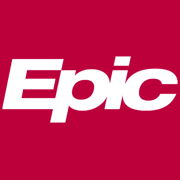CEO Judy Faulkner Airs Epic’s Views on EHR Interoperability
"I think that we do, by far, the most interoperability that any group does. Right now, it’s hidden, and there’s nothing but innuendos about it.”

- EHR interoperability is one of the most challenging issues facing the modern healthcare industry, but Epic Systems Founder and CEO Judy Faulkner thinks her company – and her rivals – are making short work of lingering technical problems that may be preventing truly seamless data exchange.

In fact, technical interoperability may not even be the major roadblock anymore, she said during a one-on-one interview at HIMSS16 earlier in March.
What’s really holding the industry back from optimal EHR use are false perceptions, both about how EHR vendors are conducting themselves and how EHR users should leverage the tools at hand.
“We do about 26 million patient interoperability exchanges – that’s not the same thing as queries – every month,” Faulkner said, defending Epic’s reputation as a leader in health data interoperability.
“If it’s Epic-to-Epic, we’ve connected everyone,” she continued. “If it’s Epic-to-non-Epic, we do it any time they have a C-CDA available, because technically speaking, it’s the same thing. It doesn’t matter if it’s Allscripts or athenahealth or anyone. We can do that just about as easily as we can do it with our own software.”
READ MORE: NIH Grant Funds Machine Learning Tool for Chronic Disease Detection
“I think that we do, by far, the most interoperability that any group does, and it should be reported so that others can see how much interoperability there truly is. Right now, it’s hidden, and there’s nothing but innuendos about it.”
The Senate HELP Committee’s keen interest in how vendors are approaching interoperability, along with the ONC’s 2015 data blocking report, have contributed to the rumor mill, painting many developers as willfully noncompliant with their customers’ calls to unchain proprietary data.
Coupled with a number of high-profile reports about disastrous EHR implementations involving Epic Systems software, Faulkner’s company has taken the brunt of the backlash against vendors who supposedly deliver subpar products.
Read: Epic EHR Patient Portal Gets Interoperability Makeover, CEO Says
“There’s a quote I like that says, ‘if you sing loud enough, they’ll think the band is wrong.’ And that goes to many of the stories you hear about Epic,” she said, noting that the majority of failed EHR implementations can be traced back to poor project management and execution, not inadequate software.
READ MORE: Hartford Healthcare Partnership Focuses on Digital Health Innovation
Even the struggling providers themselves often admit that the fault lies with their planning, but that isn’t always what observers want to hear.
“Misinformation is hurtful to us as a vendor, and it’s hurtful to the customer who says it’s not accurate,” Faulkner said. “And that’s not good for people who want to make a decision with full knowledge rather than skewed knowledge bent by people singing a song that is too loud and not accurate. It does hurt everybody when true facts are not available.”
That doesn’t mean that vendors can abdicate all responsibility when an implementation is about to go awry, she added, or when workflow snags make providers question the usability of their systems.
“I think the vendors have a responsibility to try to get providers back on track when they’re off track,” she stated.
“Here’s an example. A number of years ago, I was helping a woman use the system, and she had a screen that she wanted to save without making any changes. So instead of hitting the ‘next page’ button, she just hit the return key eleven times. I said, ‘Let me teach you a trick.’ And she just kind of froze, and she said, ‘Well thanks, but I’m used to this, but I’ll keep doing it this way.’”
READ MORE: Nuvance Health Pilots At-Home Remote Patient Monitoring Program
“So there is this problem of people learning best what they learn first. And then they don’t move to the better things, which is painful for us. Because we know that once they get over the re-learning hurdle, they’ll be better off.”
The industry at large may wish to take a similar path towards improving interoperability. As EHR vendors like Epic and its competitors develop new tools and embrace data standards like FHIR to improve data exchange, users will need to keep up with the latest innovations available to them if they want to achieve better outcomes.
To learn more about Faulkner, EHR interoperability, and the vendor community’s efforts to embrace the newest data standards, read our latest feature piece: Why Health Data Interoperability is Setting EHR Vendors on FHIR.
